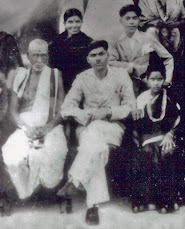One’s memory of things that hurt appears to be more sticky than the things that one enjoyed.
For thousands of persons who spend sleepless nights because of the supposed ingratitude or insult offered by someone, there may be hardly one who keeps awake thinking of the kindness someone has shown him.This hate poisons one’s own body first of all.
Of course, one can say that love also binds - as for instance, conjugal or parental love. But if this results in mutual constriction rather than growth, then it is because the basis of such love is a contractual obligation, a love that is based on the expectation of return and the feeling of frustration or rejection that is experienced by real or threatened non-return of the affection. This is not often openly acknowledged, but is concealed buy demands of respectability. The insecurity of this possessive love is only matched by the hate it engenders.
The love that is true compassion, a joy in a thing for its own sake is of a different order, and perhaps to be met with once in a millennium, in someone like Krishna, Buddha, or Christ. Krishna spoke of the binding nature of negative or demonic emotions, and the liberating nature of positive or divine emotions.
While patiently trying to train the body to express and experience the positive or the divine emotions of the liberating kind, one can assiduously avoid the pitfall of cultivating hate, not only in its crude forms but also in the more subtle garbs in which it presents itself: Love of one’s country subtly hiding the hatred for others; I am a Buddhist full of love for all, only the others are ignorant sheep that have to be cudgled or cajoled into the system; praying to Christ for the effective physical annihilation of the enemy; telling the son that you are beating him for his own good and because of your immense love for him and so on.
Hate should be discouraged in all its forms by observing that its first effect is on one’s own body. Hate can destroy or deform, never transform.
Hate should be counteracted by its antidote love.
This unconditioned compassion practiced and professed by the pacemakers, the Avatars, is difficult, but is the hallmark of the coming Man; and has nothing in common with the doctrine of love sold in the market by those who conveniently append the pacemaker's name as a trade mark, to more faithfully serve the existing social organization, an expression of its collective ego.











